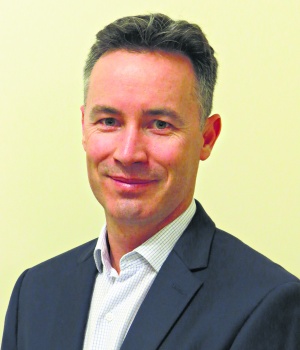
Curtin University researchers were preparing to undertake a trial that will attempt to determine the effectiveness of different treatments for social anxiety disorder.
The trial is being run by Curtin and WA Health at the Centre for Clinical Interventions and will test two groups of volunteers using different types of cognitive behaviour therapy treatment for the disorder.
Therapists delivering cognitive behaviour therapy for social anxiety attempt to re-evaluate the causes of distress for clients.
A main process of cognitive behaviour therapy is identification of a fear, identifying why it exists, rationalising it and determining a resolution.
Curtin University professor Peter McEvoy is leading the trial and said two versions of the therapy had been evaluated over the previous decade and the goal of the trial was to see which of the two, if either, was effective.
He said social anxiety is one of the most common disorders in Australia and affected about 1.3 million Australian adults at some point in their lives.
“These could be people we work with or who are in our family who suffer with the condition but we don’t know about it because there are a lot of people suffering silently.”
Beyond Blue said symptoms of social anxiety may include feeling nervous or embarrassed when meeting unfamiliar people, and being uncomfortable while being observed and performing in front of others.
Persons suffering with social anxiety may also experience excessive sweating, trembling, blushing or stammering while speaking as well as nausea or diarrhoea.
Beyond Blue and Mr McEvoy said the condition becomes a disorder when these symptoms begin influencing a person’s lifestyle.
“When clients tell us it’s severely and negatively impacting on their life in important ways, affecting mood, requiring drugs and alcohol to cope, is stopping people progressing in their career and in job interviews or establishing relationships, they’re the signs,” Mr McEvoy said.

“It’s not just shyness or social awkwardness or discomfort.
“When there is significant interference, that’s when we’d start to think of it as an emotional or anxiety disorder.”
To participate in the study people will require a referral from their GP or mental health professional.
A referral form can be found at the Centre for Clinical Interventions website at www.cci.health.wa.gov.au.
To check eligibility researchers will conduct a full assessment on each volunteer.
Participants will need to be on stable medication while participating and can not have psychosis or any substance use problems.
If you believed you suffered with social anxiety disorder and were interested in participating in the Curtin University trial, contact Matthew Hyett on 9266 5123 for more information.
Suffers with social anxiety disorder can contact Head Space for support on 1800 650 890 or chat online at www.eheadspace.org.au.
Mind Spot offers a free online assessment for anxiety and depression at www.mindspot.org.au.













